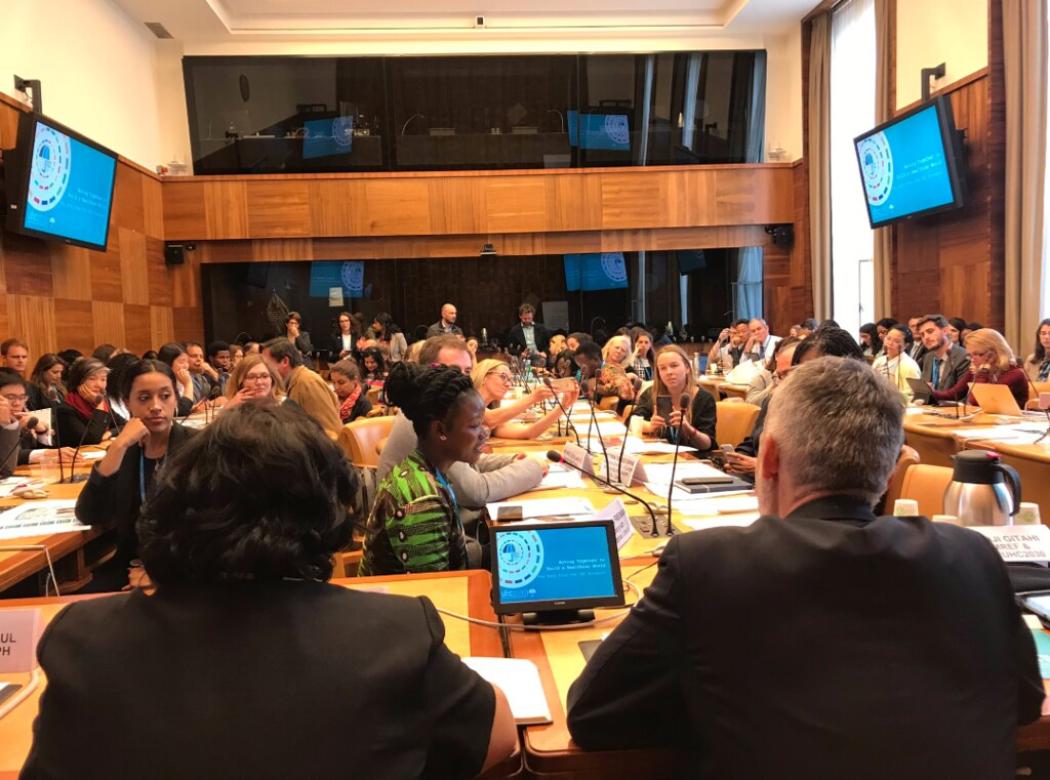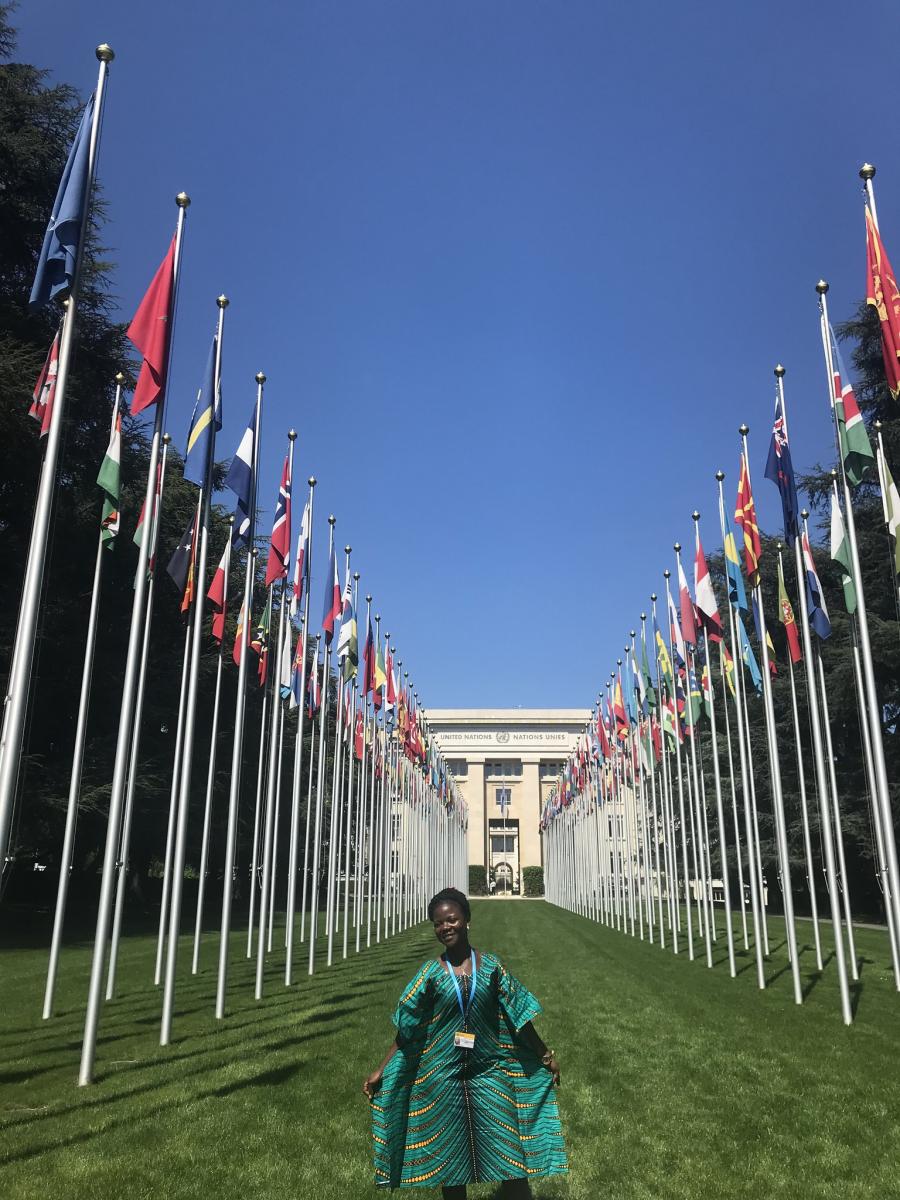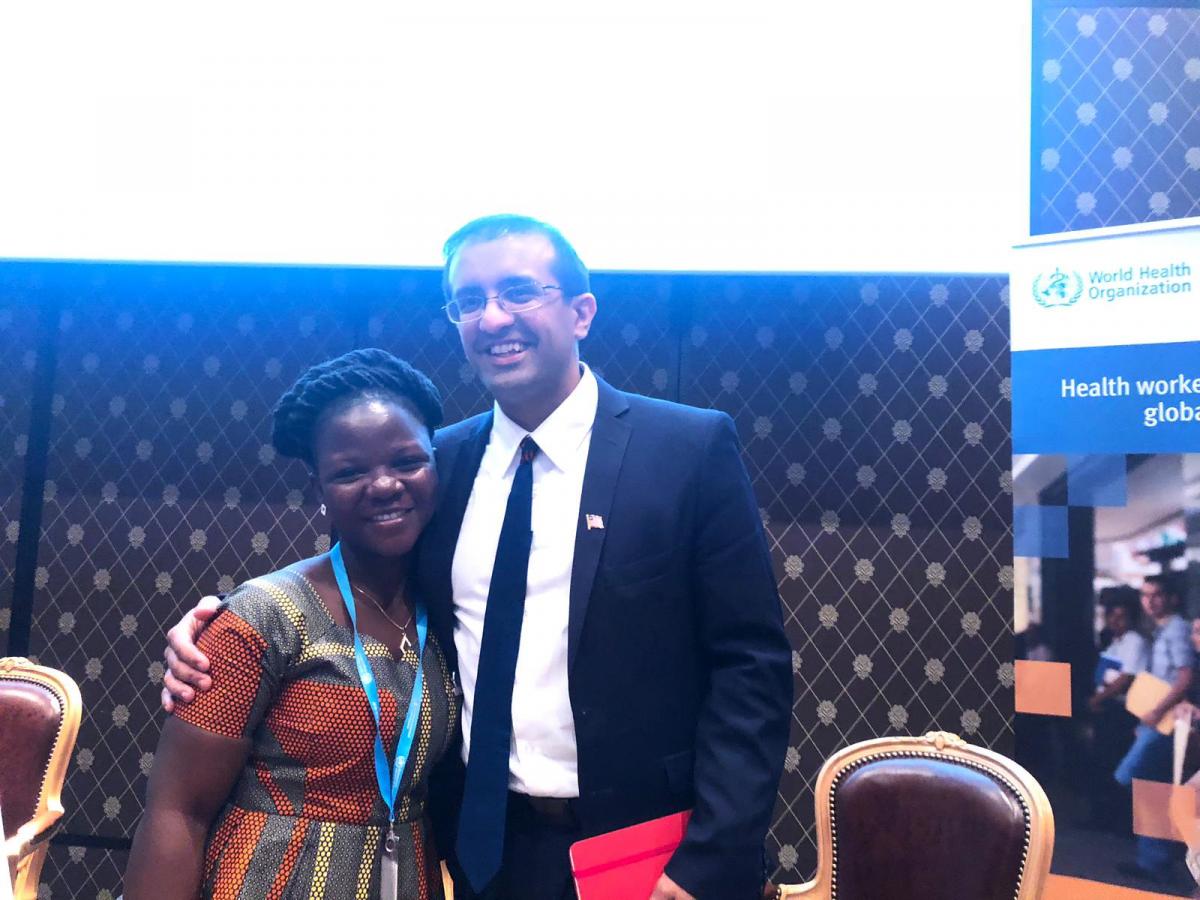Reflections from a Frontline Health Worker: Integrated Community Health Systems Drive Better Health Outcomes and Save Lives

Albertha Freeman speaks during the World Health Assembly about her experiences as a nurse supervisor in Liberia’s National Community Health Assistant Program. Photo courtesy Last Mile Health.
As a community health nurse supervisor in Gbarpolu County—one of the most remote, impoverished, and logistically challenging counties in Liberia—I am at the forefront of fighting to ensure universal health coverage truly leaves no one behind.
In Liberia, over 1.2 million people live inaccessibly far from the nearest clinic or hospital. Following the Ebola outbreak, the Government of Liberia made a historic commitment to ensure all Liberians, no matter where they live, can access essential health services. Now, I am one of thousands of community and frontline health workers employed by the Liberia Ministry of Health through the National Community Health Assistant Program to bring primary health care within reach of all Liberians. Over the past three years, the Government of Liberia and its partners have hired, trained, and equipped more than 3,500 community and frontline health workers who have carried out 1.9 million home visits. In many of the communities where we work, this represents the first time our patients are able to access consistent and quality health care.
The levels of poverty, remoteness, and isolation in Gbarpolu are high, while the levels of infrastructure and cell coverage are low. During a routine visit with one of the community health workers I supervise, I was immediately rushed to Nathaniel, a four-year-old child who was convulsing due to complications with malaria. After seeing Nathaniel’s condition, I knew I had to bring him to the facility for treatment. We tried to call an ambulance, but the lack of cell coverage prevented this. To save his life, I had to carry the child to the facility myself. Nathaniel was treated for malaria and has since returned to his community happy and healthy. Since 2016, 340,816 cases of malaria, pneumonia, and diarrhea have been treated by community and frontline health workers as part of Liberia’s National Community Health Assistant Program.
The challenges of delivering rural health care are plenty, but I have also seen firsthand the impact that increasing access to quality health care has on the community. I now see fewer malaria cases, increased access to family planning services, and healthier families overall. I believe this progress is proof of what is possible when governments prioritize the hardest-to-reach communities by paying national networks of frontline and community health workers to deliver lifesaving primary health services to their neighbors’ doorsteps.

Albertha Freeman, nurse supervisor with Liberia’s National Community Health Assistant Program, poses in front of the World Health Assembly building. Photo courtesy Last Mile Health.
In May, I had the opportunity to attend the 72nd World Health Assembly to advocate for individuals like me working on the frontlines of primary health care in some of the world’s most remote communities. While addressing a room of government representatives, donors, and global health professionals, I spoke about my experience supervising community health workers and the need for greater investments in national community health worker programs. I emphasized the critical role community and frontline health workers play in delivering quality health care and called on attendees to invest in strengthening the systems and structures that allow community health workers to perform their jobs efficiently and effectively.
This year’s assembly was especially encouraging because Member States passed a landmark resolution to recognize the impact of community health workers on achieving universal health coverage, responding to health emergencies, and promoting healthier populations. The new WHO guidelines on health policy and system support to optimize community health worker programs offer a number of important recommendations to maximize the impact of community health workers, in line with what’s happening in Liberia, including the need for quality training to equip them with necessary skills, supportive supervision by clinical staff like me, and, importantly, salaries for their work.

Albertha Freeman, nurse supervisor with Liberia’s National Community Health Assistant Program, and Raj Panjabi, Last Mile Health CEO, pose for a photo during the World Health Assembly. Photo courtesy Last Mile Health.
The resolution and guidelines reinforce what I know to be true: integrated community health systems drive better health outcomes and save lives.
I am committed to working with community and frontline health workers in far off communities so that Liberia—and the world—can realize equity-based universal health coverage by providing access to the most vulnerable first. But Liberia cannot do this alone. Achieving and sustaining universal health coverage requires collective action from more governments, the public and private sectors, NGOs, and donors.
Later this month, the United Nations will convene a consortium of influential stakeholders during a high-level meeting on universal health coverage. During this meeting, I call on all parties to commit to greater and more strategic investments in community-based primary health care systems and workforces.
Last Mile Health is grateful to their long-standing partner Medtronic Foundation for supporting Albertha Freeman's participation in the World Health Assembly. Both Last Mile Health and Medtronic Foundation are members of the Frontline Health Workers Coalition.
